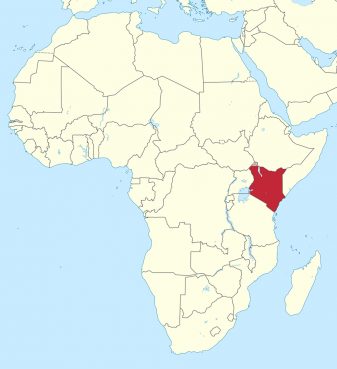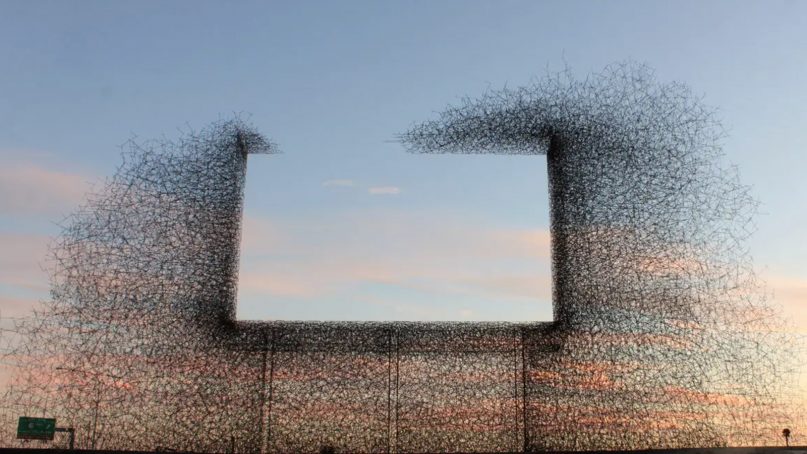NAIROBI, Kenya (RNS) — Thirteen billboards with provocative anti-abortion messages have been pulled down, ending a three-month campaign by a local church that divided and scandalized the Kenyan capital.
“They have brought down all of them. I am very concerned,” said Apostle Kathy Kageni-Oganga, the pastor of the Sozo Church of God, a Pentecostal church that sponsored the campaign. “There have been billboards advertising cigarettes, alcohol and others on gay issues. I don’t know why they targeted ours.”
The action has triggered a heated debate between abortion-rights and anti-abortion groups in the East African country, where the procedure is mostly illegal and the faiths strongly oppose any attempts to legalize it.
Abortion in this predominantly Christian East African nation is only permitted at the recommendation of a trained health professional, in times of an emergency or when the life or health of a mother is in danger.
But abortion-rights groups have been pressing for relaxation of abortion laws, citing the death or injury of thousands of women who seek abortions in backstreet clinics.
The billboards starkly countered those campaigns with signs reading “Abortion is murder,” accompanied by an image of a fetus. Other billboards said “Shut abortion clinics” and “Your mother gave you a chance, it wasn’t easy then too. Give your baby a chance.”
The church said the intent of the billboards was to offer an alternative by encouraging women to choose adoption, rather than abortion. The church had established a help line to offer counseling services and offered to shelter mothers.
The advertising company that owned the billboards took the church’s messages down after protesters marched to the office of the governor of Nairobi in April and gave the administration two weeks to force their removal, calling them misleading and inflammatory.
“We felt they (billboards) were spreading misinformation and fear when they said abortion was murder, which (it) is not. As they were presented, we felt they would encourage more women to procure abortion illegally,” said Mary Were, program manager at Kenya Legal and Ethics Issues Network on HIV/AIDS.
In a 2018 report, the government said that treatment of unsafe abortion cost public health care facilities an estimated $500 million in 2016 alone. In 2012, 500,000 cases of unsafe abortion were recorded across the country.

Kenya, in red, located in eastern Africa. Map courtesy of Creative Commons
According to abortion-rights groups, seven Kenyan women die each day from unsafe abortions.
“The billboards fuel stigma and misinformation on abortion, creating an environment that adversely affects reproductive health providers and women seeking the services,” said Evelyne Opondo, a regional director of the Center for Reproductive Rights, another group involved in the protests.
But church groups say removing the messages amounted to intolerance and discrimination — acts that denied the public the right to information.
“All they have done is to unite the church around the matter. When the church is persecuted, it grows stronger. You will see more coming up,” said Kageni-Oganga, promising that a group of Kenyan churches would soon stage their own protest against abortion.
“We have the right to educate the people,” said the Rev. Geoffrey Munialo, a Pentecostal pastor in Nairobi. “That child in the womb, whatever scientific name it may be given, is human and has the right to protection.”





